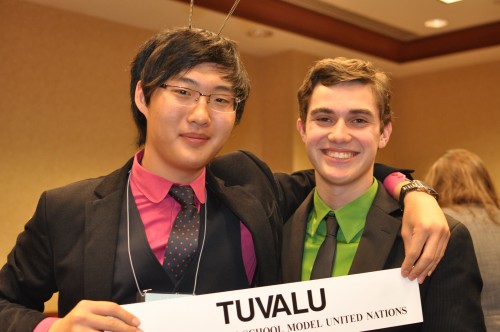The vast majority of Model UN delegates will be assigned a smaller or seemingly obscure country at some point in their career. Simulating smaller countries is a challenge because they have less influence and are less active in international relations in real life. It becomes difficult to do research on that country’s policies and past actions, and that makes it difficult to educate others about their policies and solutions or to get others to follow a small country as a leader in a MUN simulation. Many delegates, particularly those who are newer or struggle with research, do not like being assigned smaller countries for all these reasons.
I was part of a club program during high school and a brand new travel team during college though, so I had spent a significant portion of my Model UN career representing smaller countries. From my experience, I have observed several approaches that I believe are the wrong and right ways to take when given a small country assignment.
Wrong Approaches
I believe there are two wrong approaches that delegates commonly use. The first wrong approach is to just complain that they are not a P5 country and how unfair it is for the powerhouses to always get assigned a P5 (and win awards easier). These delegates tend not to try or put in a full effort or dwell on their disadvantage when they see a more influential country in real life take a leadership role in a MUN simulation. Life is not fair, and complaining won’t help you be productive in this case.
The second wrong approach is to think that just because no one will probably know anything about your country, you should just make up your country’s policy and “BS” your way through committee. It might work, especially if you’re in a novice high school setting, though less likely in advanced committees or at the university level where people actually know their facts. However, you would be doing yourself an educational disservice for not learning about a certain part of the world and not learning how to deal with less influential positions.
Right Approaches
I believe there are two right approaches to such an assignment. The first right approach is the educational approach, or what I call the Best Supporting Actor approach. You want to become an expert in simulating your specific small country. Instead of stressing out that you are not an influential country, you want to role-play your country to the best extent it can realistically be in the international system. For example, you could be a great deputy to a larger country in your regional bloc, or you could act as a neutral mediator and present a third-party solution between two conflicting blocs.

I tended to use the latter approach since I came from a competitive circuit. I shared some of the preparation tactics in my blog post about my experience as Bhutan dominating the P5 here. Tactically though, it’s important to focus on research because common knowledge or the news probably do not cover this country’s policies. Specifically, the research can focus on treaties, conventions, and resolutions that the country has adopted or not adopted; country specific programs that have been implemented on the topic including domestic ones; and any statements made by government officials including UN GA speeches. These are better starting points for extrapolating country policy if it comes down to having to make part of it up.
Ultimately, Model UN is about learning. Regardless if you want to learn about the real world and how small countries fit into the system and struggle to influence policy or if you want to learn about how to compete with a disadvantageous assignment in order to challenge your skills, you should take the small country assignment as a good learning opportunity and make the most of it.
Have you been assigned a small country? How did you effectively approach it?



